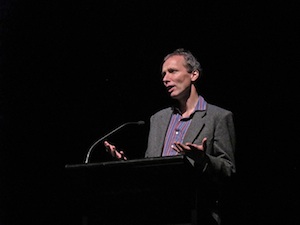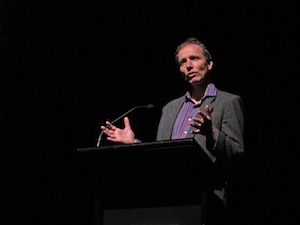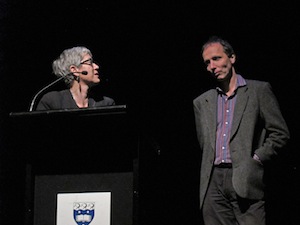Have you got a journalistic project that you want to complete, but can’t get enough money or time to do it?
If so, a Bruce Jesson journalism award may be able to help. Applications for the 2014 awards are now open, and close on Friday 26 September.
There are two awards, a senior one to fund a planned journalistic project and a journalism student award for work that has already been published. The senior award is unique in New Zealand because it funds time and research costs of up to $4000 in advance for projects that could be newspaper or magazine articles, reports on the internet, books, films, radio or TV documentaries or “any other publication which is aimed at, and accessible by, the general public of New Zealand or any part of New Zealand”.
Projects must be “critical, informed, analytical and creative journalism or writing which will contribute to public debate in New Zealand on an important issue or issues”. Past winners have included Nicky Hager, Max Rashbrooke and Rebecca Macfie for books; Jon Stephenson, Amy Richardson and Peter Malcouronne for magazine articles; Tina McIvor for a research report; and last year’s winner, Alister Barry, for a film on New Zealand’s climate change policies.
The Emerging Journalism Prize for student journalists offers has $1000 for “outstanding recent work by New Zealand print journalism students.” It is nominated by the heads of New Zealand journalism schools or journalism programme leaders for published work by student journalists.
Entries for the 2013 Bruce Jesson Journalism Prizes are now invited both from self-nominating senior journalists and the Heads of New Zealand journalism schools. Entries will be assessed by members of the Foundation’s Journalism Sub-committee: Geoff Kemp (convenor), Camille Guy, Joe Atkinson, Simon Collins, and Jon Stephenson.
Details are available on the website. Applications and nominations (including copies of nominated work) can be submitted online, or mailed to Dr Geoff Kemp, c/- Political Studies Department, University of Auckland, PB 92019, Auckland (g.kemp@auckland.ac.nz). The deadline is 5pm, Friday 26 September 2014.
Contacts:
Dr Geoff Kemp, 021 445 721
Camille Guy, 09 378 7553
Dr Joe Atkinson, 021 320 069
Simon Collins, 021 612 423
Jon Stephenson, 021 149 5299


